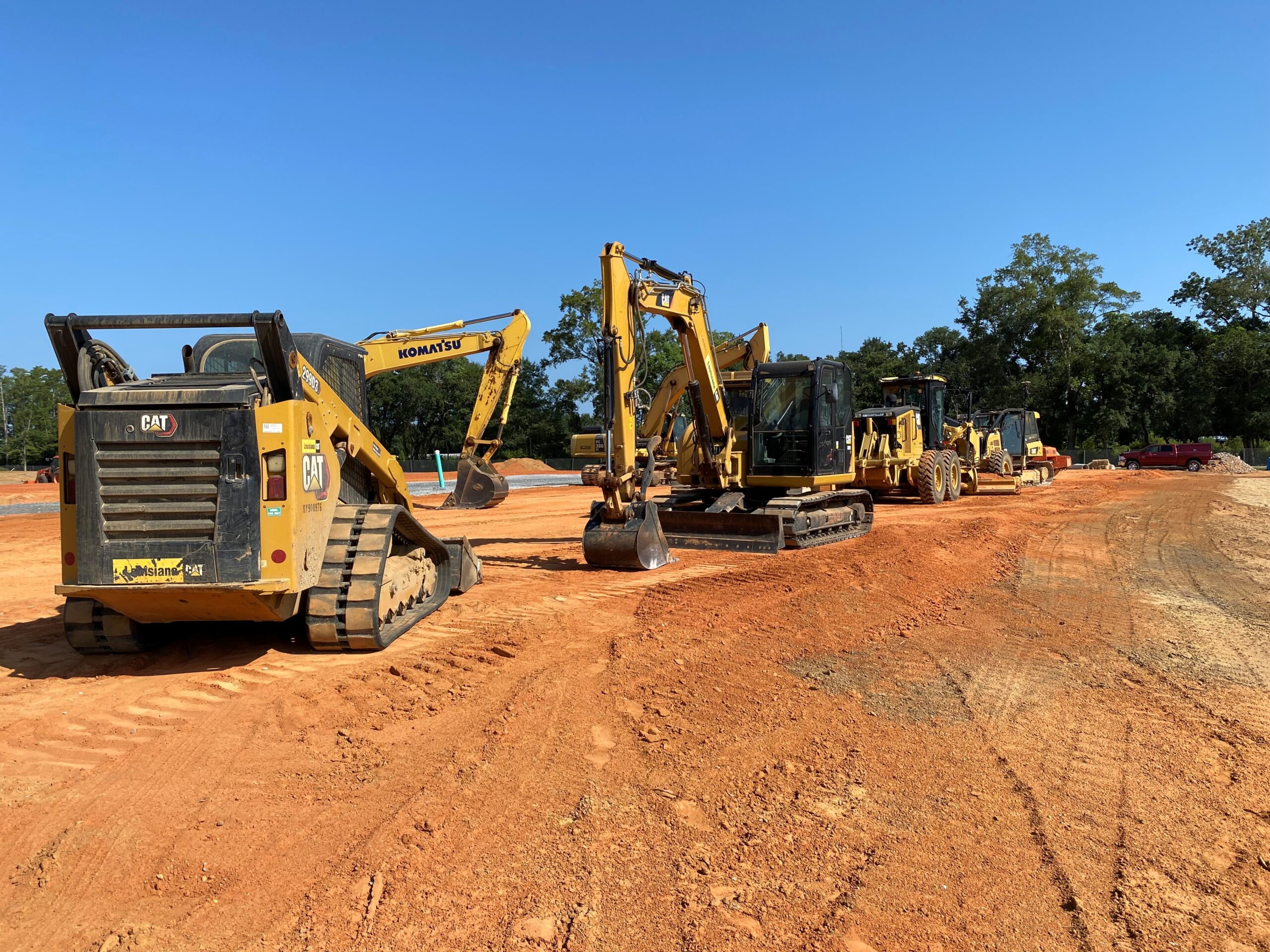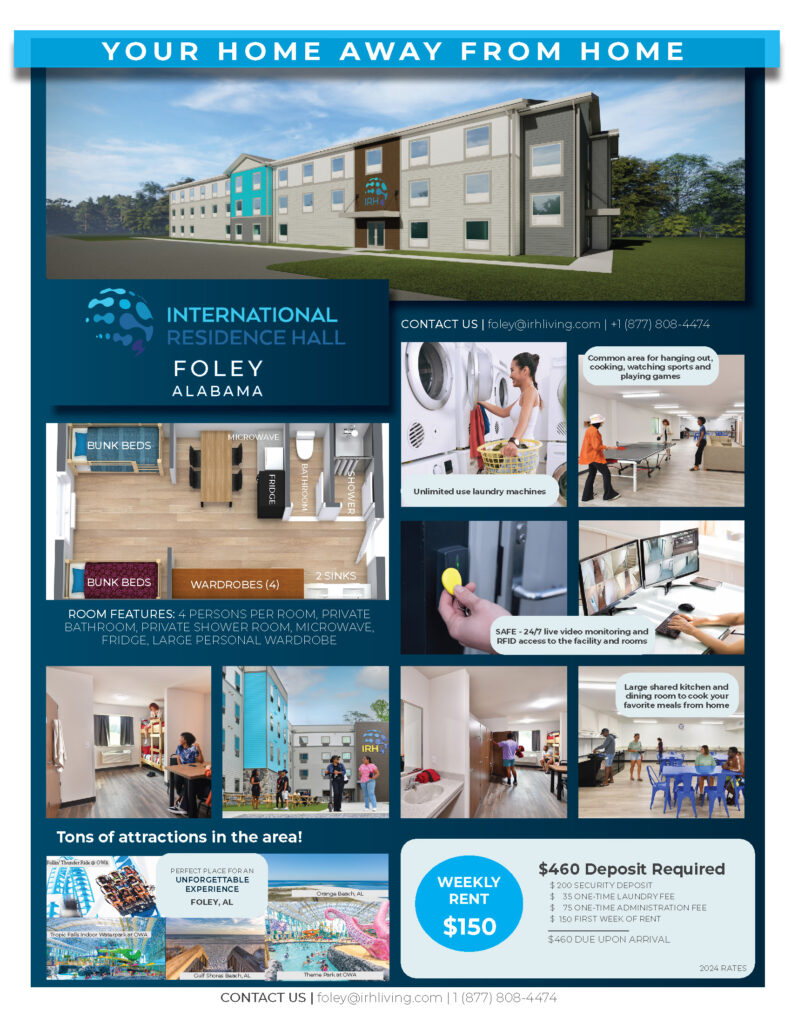FOLEY – An $18-million residence facility to house more than 600 seasonal workers needed by the South Baldwin hospitality industry is scheduled to open in Foley by the start of the 2024 tourist season.
Work is underway on the International Resident Hall on Koniar Way. When completed the first phase will include two 37,500-square foot buildings to house temporary international workers in the United States under the J-1 visa program.
The facility is a joint project by the city of Foley, Poarch Band of Creek Indians and Holtz Companies.
Foley Mayor Ralph Hellmich said the workers are needed not just in the city, but throughout the region.
“This J-1 project will provide, in the first phase, over 600 J-1 workers that will help all of our businesses in South Baldwin. It’s a piece of the puzzle that is so important to us and it’s important to our local businesses,” Hellmich said.
The project is the first of four planned phases that will provide housing for more workers in the future.
“Eventually, hopefully this campus will go to 2,400 people,” Hellmich said. “It is strategically located near OWA, near Tanger, near our businesses downtown and also, we have great transportation to even serve the businesses south of us.”
The city of Foley provided the property on which the facility is being built. Hellmich said
“We also will be doing a project for lighting and a sidewalk project and a pickleball court right across the street because the J-1 is not just about work. It’s about the cultural exchange and how that works with the workers as they live here in the United States,” Hellmich said.
The mayor said that businesses in South Baldwin County now need another 6,000 workers to fill positions during the summer tourist season.
“This impacts all of South Baldwin,” Hellmich said. “It’s not just restricted to the city and citizens of Foley. It’s for any business in South Baldwin.”
Cody Williamson, president and chief executive officer for Creek Indian Enterprise Development, which operates OWA, said their operations need more workers.
“During the summer, we employ at least 1,000 workers just for us. That doesn’t even count some of the shops and other things at the OWA facility and that doesn’t count the RV park and anything else that we might be building,” Williamson said. “This year, we were short, probably 200 workers, so, of the 600 spots, we’ll have one third of them.”
Stephanie Bryan, president and CEO of the Poarch Band of Creek Indians, said the band employs about 6,000 people around the state, many in the hospitality industry.
“We’ve all navigated through the turbulent times of COVID and we’re all having issues with workforce development,” she said. “Housing is a key component and a necessity that people need in the hospitality and tourism industry in order to provide that great experience and I think with this J-1 project that’s exactly what we will do.”
She said housing is a major issue for workers across the region.
“We’re investing in building stronger, safer communities together to have that workforce development,” Bryan said. “Alabama is a great state for economic development, but lack of housing has become a major issue.”
The Poarch Band is working with Holtz Companies to build the Foley facility. The total cost of the first phase of the project is expected to be $18 million.
Dan Bullock of Holtz said his company has built similar facilities in attractions such as Dollywood in Pigeon Forge, Tenn. and Branson, Mo.
At the Foley International Residence Hall, residents live in dormitory-style apartments. Each apartment includes beds for four people, a bathroom and kitchen area with refrigerator and microwave oven. Rent on the apartments is $150 a week.
The federal J-1 Visa program provides opportunities for international candidates to work in the United States on a temporary basis. In 2022, more than 96,000 students took part in the program working on a summer or seasonal basis.




